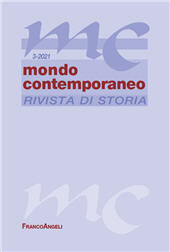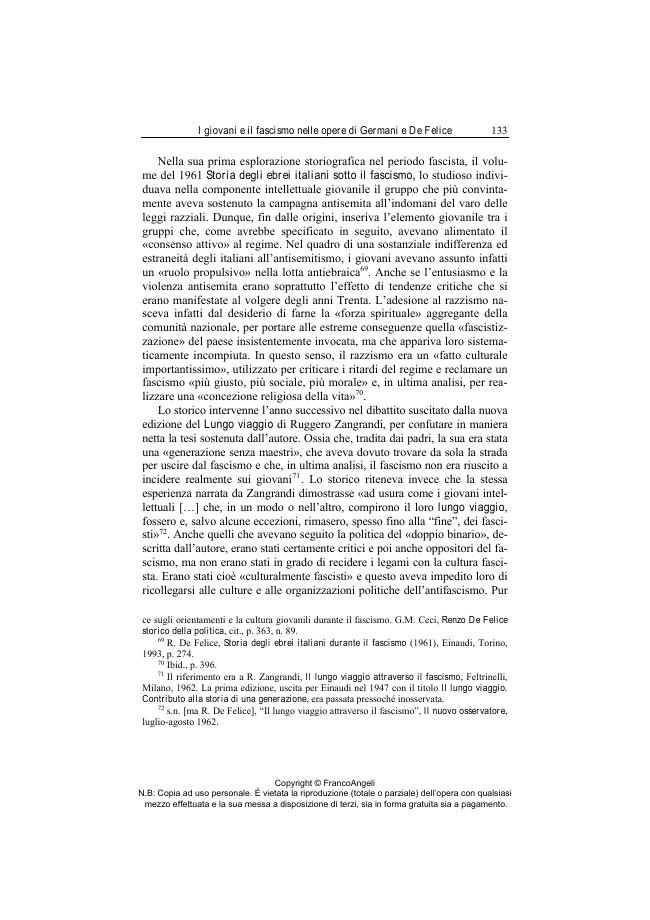I giovani e il fascismo nelle opere di Gino Germani e di Renzo De Felice : interrelazioni, consonanze, divergenze
P. 115-150
L'articolo esamina la questione dei giovani nelle opere del sociologo Gino Germani e dello storico Renzo De Felice. Entrambi gli studiosi hanno individuato per primi, nei rispettivi campi di indagine, la centralità del tema per comprendere il processo di selezione e di formazione delle classi dirigenti nei regimi autoritari/totalitari e formulare ipotesi circa la loro capacità di durare nel tempo. Nella prima parte viene descritta l'interpretazione elaborata da Germani della socializzazione dei giovani nei regimi fascisti, dalla sua origine risalente alla giovanile militanza antifascista ai successivi sviluppi in prospettiva propriamente sociologica. Successivamente si tenta di ricostruire, soprattutto attraverso l'analisi dei testi dei due autori, l'influenza esercitata dall'impostazione del problema dei giovani da parte del sociologo sull'opera di De Felice.
Infine, viene seguita l'evoluzione dell'analisi di De Felice della questione nel corso degli anni, mettendo in evidenza la capacità dello storico di rivedere e di mettere a punto lo schema del rapporto giovani-fascismo delineato dallo studioso italo-argentino, anche grazie alle nuove evidenze scientifiche e alle nuove fonti, ma anche la permanenza di alcuni limiti interpretativi e contraddizioni analitiche. [Testo dell'editore]
The article focuses on the question of youth and fascism in the works of sociolo-gist Gino Germani and historian Renzo De Felice. Both scholars were the first to identify, in their respective fields of investigation, the centrality of the topic for un-derstanding the process of selection and training of the ruling classes in authoritar-ian/totalitarian regimes and formulating hypotheses on their ability to last over time. The first part describes the interpretation developed by Germani of the socialization of youth in fascist regimes, from its origin dating back to the youthful anti-fascist militancy to its developments in a properly sociological perspective. Subsequently, an attempt is made to reconstruct, especially through the analysis of the texts of the two authors, the influence exercised by the sociologist's approach to the problem of youth on the work of De Felice.
Finally, the evolution of De Felice's analysis of the question over the years is followed, highlighting the his-torian's ability to review and fine-tune the scheme of the youth-fascism relationship outlined by the Italo-Argentine scholar, on the basis of new scientific evidenc-es and sources, but also the persistence of some interpretative limits and analytical contradictions. [Publisher's text]
Ist Teil von
Mondo contemporaneo : rivista di storia : 3, 2021-
Artikel aus derselben Ausgabe (einzeln erhältlich)
-
Informationen
ISSN: 1972-4853
KEYWORDS
- Gino Germani e Renzo De Felice, socializzazione dei giovani nei regimi fascisti, antifascismo, classe dirigente fascista, fascismo italiano, Spagna franchista
- Gino Germani and Renzo De Felice, socialization of Youth in Fascist regimes, anti-fascism, fascist ruling class, Italian fascism, Franco's Spain



